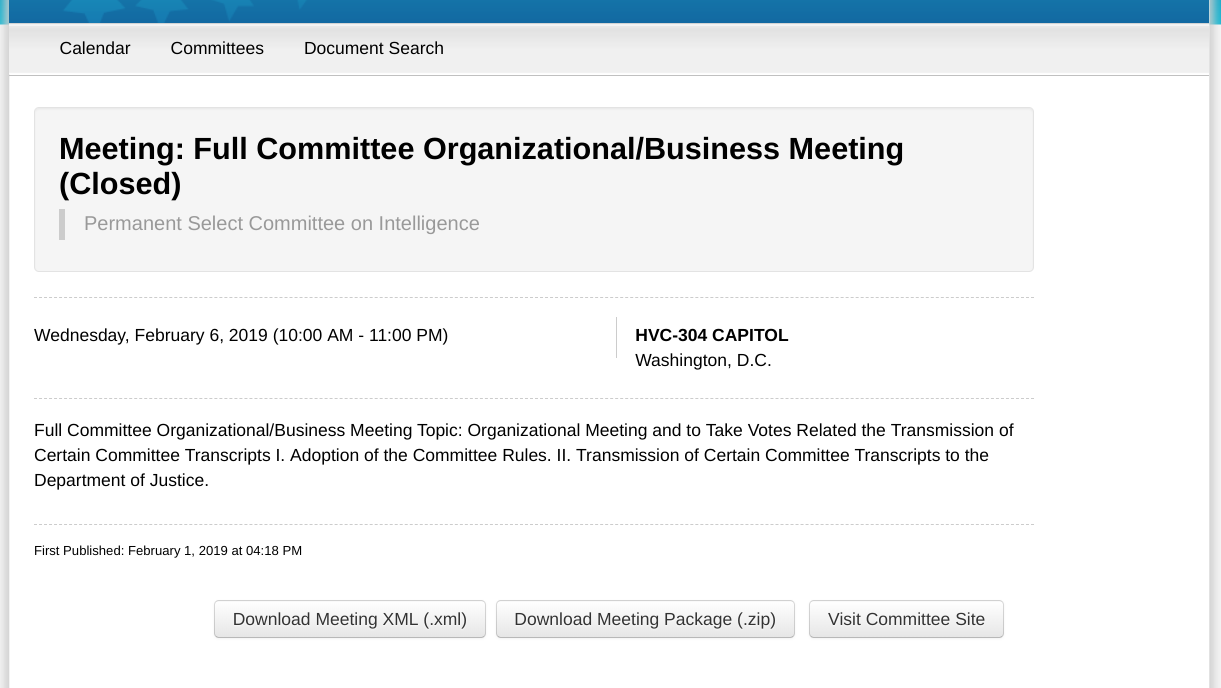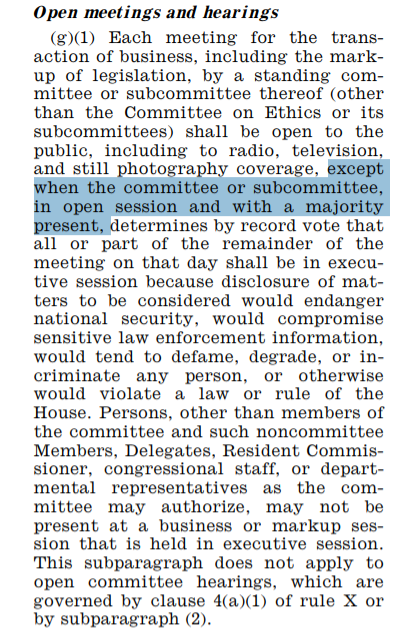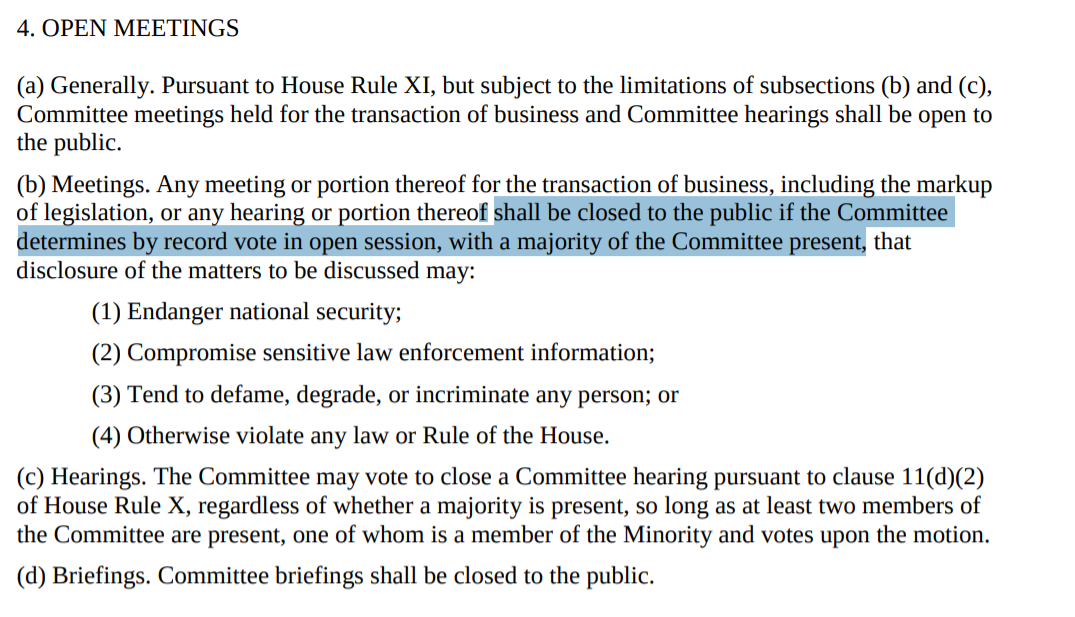The House Intelligence Committee has scheduled its organizational meeting for this Wednesday, but by setting the meeting as “closed” and holding it where it is inaccessible to the public and press, it is in violation of House rules.

House Rule XI (2)(g)(2) on open meetings requires that business meetings be open to the public (including the press) except when the committee holds by record vote in open session to close it for one of a limited number of reasons.

The Committee could argue that these openness rules only apply to standing committees and HPSCI is a select committee. But House Rule X, clause 11(d)(1) incorporates this provision to specifically apply to the House Intel Committee.

The House Intelligence Committee has recognized the authority of these provisions in the past. For example, the House Intelligence Committee rules from the *114th* Congress required a public meeting and vote before going into closed session. See Rule 4.

The House Intel Committee is holding the proceedings in HVC-304, which is on the third floor of the U.S. Capitol (inside the Capitol Visitors Center) and I believe this is a closed space, inaccessible to the public and press. I belief this is where the SCIF is located — a Sensitive Compartmented Information Facility– which is by definition keeps out everyone except those with clearance. Holding the organizational meeting here violates House rules, which requires the public and press have access to this public meeting.
It should go without saying that the first meeting of the House Intelligence Committee, at which it adopts its rules of procedure, should be open to the public and press. There’s no reason to close that discussion and, under the House rules, the committee has not taken the necessary steps to make the determination to close the proceedings.
— Written by Daniel Schuman